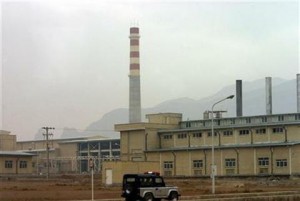 NEW YORK: Former Israeli Prime Minister Ehud Olmert said Monday that his country must work with the United States and Europe to end the threat of a nuclear weapons-armed Iran.
NEW YORK: Former Israeli Prime Minister Ehud Olmert said Monday that his country must work with the United States and Europe to end the threat of a nuclear weapons-armed Iran.
Olmert did not say if he will run against his bitter rival Prime Minister Benjamin Netanyahu in Israel's Jan. 22 national election, but he certainly seemed to be campaigning to oust the incumbent.
He accused Netanyahu of using the Iranian issue as an excuse to avoid dealing with the Palestinians. During Netanyahu's nearly four years in office, peace efforts with the Palestinians have remained frozen.
"It is true that Israel will not be able to tolerate a nuclear Iran and I am sure that America understands it," Olmert told an audience of Jewish-American supporters at the Carlyle Hotel.
"And I'm sure that when the time will come, according to the judgment of the international community led by the United States, and Europe, and the state of Israel, everything that needs to be done, will be done -- in a decisive way," Olmert said.
The event was sponsored by the Israel Policy Forum, which advocates Israeli-Palestinian peace talks leading to a two-state solution.
He praised Palestinian Authority President Mahmoud Abbas as a man who had long spoken out against terrorism, even privately in Palestian councils in Ramallah, and called him a worthy partner in peace talks.
He castigated Netanhayu's government for moving forward to expand Jewish settlements east of Jerusalem in the West Bank the day after the Palestinians won "non-member state" status at the U.N. General Assembly last week.
"I was utterly surprised," Olmert said.
Though Olmert had himself approved the construction and planning of Jewish settlements during his 2006-2009 administration, he said those were "known to us, and the U.S. government, and unofficially to the Palestinian government" as being on land that would remain under Israeli rule in an eventual overall peace treaty.
Netanyahu's government has proposed to split the West Bank, ruled by Abbas' Palestinian Authority, with a swathe of new Jewish housing in a tract call "E1." The plan was sharply criticized by the United States and European Union.
That land is at "the core of the dispute that must be resolved in the complex of negotiations between us and the Palestinians," Olmert said.
He said that he had discussed that particular patch of land with then-President George W. Bush and then-Secretary of State Condoleezza Rice
"They asked me, 'Please don't build in E1 because if you will do that, it will be beyond the capacity of the Palestinians to accept it, and they will not accept to resume negotiations,'" Olmert said.
Olmert said he wanted E1 to come under Israeli sovereignty under a comprehensive peace plan, but pledged to Bush and Rice that he would not build on it unilaterally.
By The Daily Star
The Iran Project is not responsible for the content of quoted articles.

 QR code
QR code